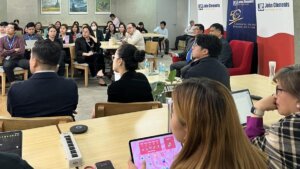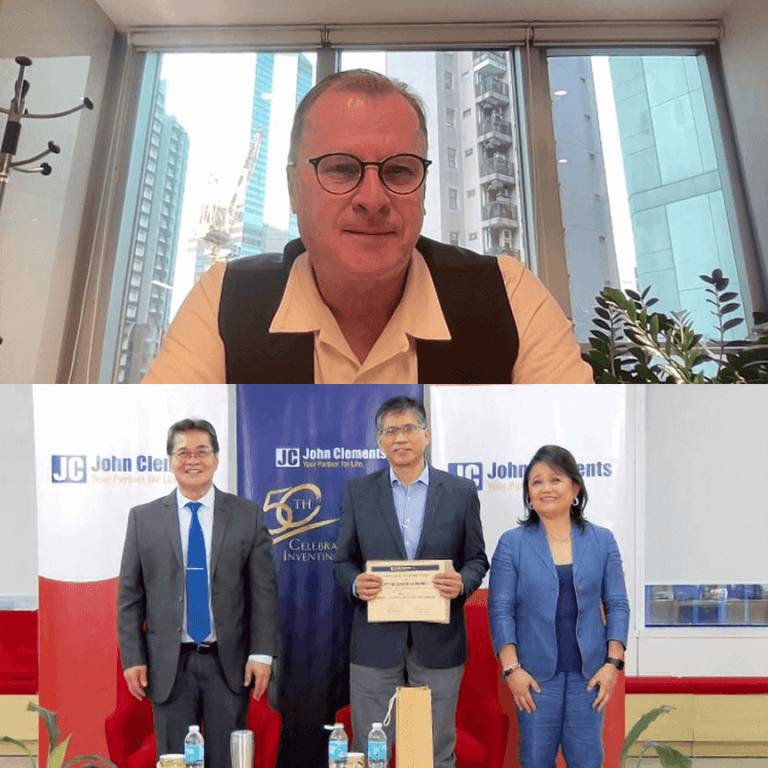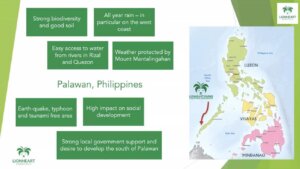In a recent Weekly with JC session, we got a fascinating peek into the world of sustainable agriculture through the story of Anders Haagen, Co-Founder of Lionheart Farms and a passionate innovator who’s putting both heart and science into farming.
Anders’ journey began 26 years ago when he met his wife in the Philippines. Back then, he was still in banking—but already dreaming of fields and farms. “I used LEGO to design my dream farm,” he shared with a smile, nodding to his Danish roots and the world-famous toy brand.
Sustainability in Action
Fast forward to today, Lionheart Farms is nestled in Palawan and is anything but ordinary. The farm sits on land that used to be a shrimp facility and is now transformed into a circular farm system. Waste from shrimp and fish is repurposed in a biogas facility to produce ethanol, which powers their distillation process. Fermentation tanks create CO₂, which is pumped into greenhouses to enhance plant growth. Everything—from the sap to the waste—is part of a thoughtfully designed cycle that feeds into a wastewater treatment plant. Sustainability, but make it smart.
Rethinking Coconut Farming
So, what makes Lionheart truly unique? It’s their approach to hybrid coconut farming. Instead of harvesting coconuts the traditional way, they tap the sap—literally. Sap is rich in sugar molecules, and harvesting it captures four times more calories per tree compared to the usual method. Plus, unlike sugarcane (which has to be cut down and replanted every cycle), coconut palms keep producing sap without being chopped down. That’s a major win for water and fertilizer conservation.
Innovation Meets Labor Challenges
There’s a catch, though—tapping coconut sap is hard work. “Nobody really wants to do this job,” Anders admitted. Out of the 300 tappers he needs, he only has 37. To address the labor shortage, Lionheart is now working on an auto-tapping system with 3D-printed tools and sterilization tubes—turning what used to be a backbreaking job into something more high-tech and sustainable. It’s not just about farming smarter—it’s also about creating better jobs.
From Farm to Global Market
In terms of business, Lionheart is vertically integrated, which means they control everything from harvesting to processing and marketing. Their high-value products—like organic coconut vinegar and coconut aminos—are making their way to international markets through partners like Nutiva in the U.S.
Building a Stronger Agri-Community
Also joining the conversation was Atty. Melaquiades Hernandez from Dole Philippines who echoed the importance of projects like Lionheart in reviving rural communities. He talked about Dole’s sustainability efforts, including biomass plants and renewable energy partnerships, reinforcing that big and small players alike are pushing toward more responsible agriculture.
Facing the Realities of Growth
Of course, it hasn’t all been smooth sailing. Labor shortages remain a pressing issue, especially for tasks like sap harvesting that are both physically demanding and repetitive. Scaling a sustainable model that works in theory into something viable at the community level has also required continuous innovation and investment—not just in machines but in people. There’s also the challenge of balancing commercial goals with sustainability—being both good for the planet and profitable isn’t easy, but Lionheart is determined to prove it’s possible.
What We Can Learn from Lionheart
- Sustainable farming is not a trend—it’s a system. Lionheart’s circular farm design is a masterclass in how to close the loop in agriculture.
- Hybrid coconut sap harvesting is a game changer, offering more calories and better water efficiency than traditional coconut or sugarcane farming.
- Labor is a real challenge in agri-innovation, which is why tech solutions like auto-tapping are crucial.
- Community impact matters. Both Lionheart and Dole emphasized the role of agribusiness in job creation and rural development.
- High-value products drive growth. Lionheart’s move to vertically integrate and focus on premium sap-based goods shows how sustainability and profitability can go hand in hand.

The session served as a powerful reminder that agriculture isn’t just about crops and yields—it’s about vision, resilience, and designing a future where people, the planet, and profit all thrive together.
Ready to Cultivate Change in Agri-Business?
Inspired by Lionheart’s story of sustainable agriculture in the Philippines? At John Clements Consultants, we support innovators and enterprises driving rural development and sustainability through smart talent solutions. Contact us today, and let’s grow something great together.








